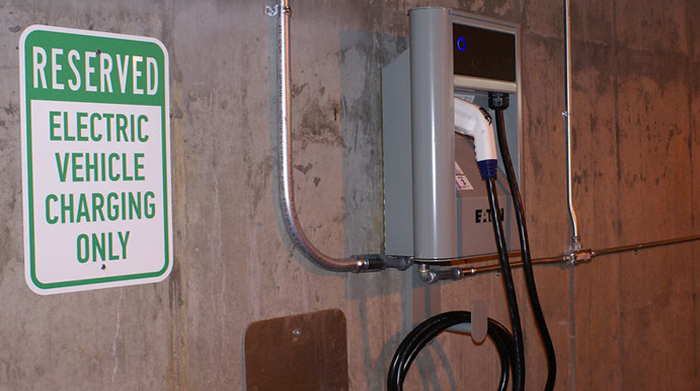How EV Smart Charging Can Help Reduce Summer Blackouts

Image courtesy of Greenville Daily Photo under CC0 1.0 Universal (CC0 1.0) Public Domain Dedication, resized to 700 x 391 pixels.
I just stumbled onto an interesting article about how electric vehicle (EV) smart charging could be leveraged as a grid asset to reduce summer blackouts. While the article was of the sponsored variety, it nonetheless offered some good food for thought that I believe is worth discussing.
What is Smart Charging and How Can It Boost Reliability?
Smart charging basically refers to the ability to recapture unused electricity from EV charging sessions and feed it back into the grid. This makes sense because, according to the article (which is sponsored by ev.energy), the average EV is plugged in for 12-14 hours per session but only requires 2-3 hours of charging per session.
Software exists that can connect to the EV or the charger and can automatically schedule each charge to occur during periods of lower demand within the 12- to 14-hour window. In a nutshell, this can help smooth out overall demand, serving as a boost to reliability.
And as EV adoption continues to expand nationwide, the reliability benefits around smart charging will continue to grow. For example, 2 new rules proposed by the EPA are designed to ensure that 67% of new passenger cards sold in 10 years are electric. Already, electric vehicles account for 21% of all new vehicle sales in California, and more states are sure to follow.
The company that published the paid article has already seen decent success with smart charging. MCE Energy, California’s largest aggregator, is paying customers who agree to allow their EV charging to be moved to lower-demand parts of the day. Over a 10-day period around Labor Day 2022, 99% of customers participated and EV demand was reduced by 96%.
Another example is Con Edison’s SmartCharge New York program that pays drivers $35 a month to avoid charging during peak-demand hours, which has resulted in only 2% of EVs getting charged during the peak hours.
The bottom line is that smart charging may not be the end-all-be-all, but it certainly seems like a no-brainer with results like that.



